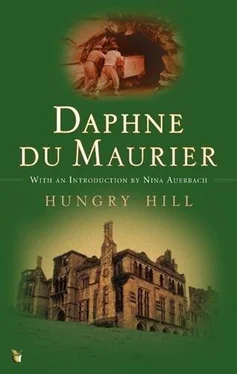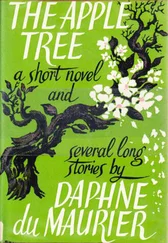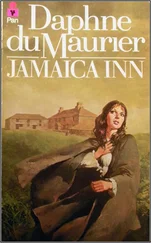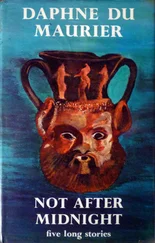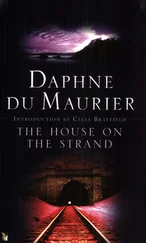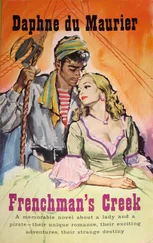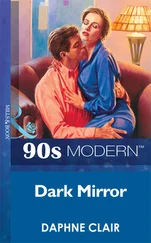Daphne du Maurier - Hungry Hill
Здесь есть возможность читать онлайн «Daphne du Maurier - Hungry Hill» весь текст электронной книги совершенно бесплатно (целиком полную версию без сокращений). В некоторых случаях можно слушать аудио, скачать через торрент в формате fb2 и присутствует краткое содержание. Жанр: Историческая проза, на английском языке. Описание произведения, (предисловие) а так же отзывы посетителей доступны на портале библиотеки ЛибКат.
- Название:Hungry Hill
- Автор:
- Жанр:
- Год:неизвестен
- ISBN:нет данных
- Рейтинг книги:3 / 5. Голосов: 1
-
Избранное:Добавить в избранное
- Отзывы:
-
Ваша оценка:
- 60
- 1
- 2
- 3
- 4
- 5
Hungry Hill: краткое содержание, описание и аннотация
Предлагаем к чтению аннотацию, описание, краткое содержание или предисловие (зависит от того, что написал сам автор книги «Hungry Hill»). Если вы не нашли необходимую информацию о книге — напишите в комментариях, мы постараемся отыскать её.
Hungry Hill — читать онлайн бесплатно полную книгу (весь текст) целиком
Ниже представлен текст книги, разбитый по страницам. Система сохранения места последней прочитанной страницы, позволяет с удобством читать онлайн бесплатно книгу «Hungry Hill», без необходимости каждый раз заново искать на чём Вы остановились. Поставьте закладку, и сможете в любой момент перейти на страницу, на которой закончили чтение.
Интервал:
Закладка:
John-Henry laughed, and threw away the match.
"That's not fair," he said. "I'm one of them, and I've never wanted to knife anyone."
He went on walking down the street towards the square, where the shooting had been. Many of the windows were broken, not from the incident of five minutes ago, but dating back over the weeks. The square was clear now of troops, but for the guard standing round the police-station. A young man was talking to a woman on the edge of the pavement. His face was lean and bitter. He had his hands deep in his pockets.
"They got Micky Farran," he said to the woman, and then, as John-Henry passed, he stopped talking, and looked down at his feet.
They moved off together, and it seemed to John-Henry that the streets were empty now, and strangely quiet. Across the square, at the far end, were the remains of the barricade. The barbed wire lay in loose strands. A sudden shower of rain came from the bright sky, and was gone again. In the far distance a steamer hooted, deep and low, and was echoed by the high, thin answer of a tug. John-Henry was thinking of the sentry's words, "Not a man amongst them who wouldn't knife his best friend, and then take flowers to his funeral." It was true, he supposed, and yet.
Faces of his childhood came into his mind.
Dear Granpie, with his great, deep-set eyes, his bent shoulders, his white hair, walking through the market-square at Doonhaven, and one of the old women at the stalls lifting a streaming face to his and calling upon the Saints to bless him. He had found employment for the woman's son, and she had never forgotten it. Gran, small, bright and bustling, skimming the cream off the milk with a scallop shell, boxing his ears because he tickled the kitchen-maid's legs with a feather duster, and she half-way up a ladder at the time. Patsy, gardener on week-days and groom on Sundays, who told him the legends of the fairies who walked on Hungry Hill, and the little pixies who burrowed underground and bewitched the miners in the old days. He would not have known how to handle a knife except to whittle sticks or to cut a pig's throat. Perhaps killing a pig made it easy to kill a man…
The streets looked normal on this side of the city; and as he turned into the terrace where Aunt Lizette had her small flat, and saw a child bowling a hoop in the gardens opposite, it seemed ridiculous to remember the skidding car in Queen Street, the machine-gun fire, and the bitter flat voice of that man on the pavement, "They got Micky Farran. '?
He rang the bell at No.5, and climbed the stairs to the little sitting-room, overfull of furniture, where Aunt Lizette sat day after day, crocheting lace samplers to be sold for blind babies. Queer passionate hobby, that must have its origin, surely, in subconscious pity of her own childhood, when, lame and neglected, she lived in fear of a resentful stepmother. She rose smiling now, as he came into the room, her sallow complexion a little yellower than usual, her eyes blinking behind the spectacles.
"You dear boy," she said, and he noticed once more, with pleasure, that her voice had the soft, warm lilt belonging to Slane and the south, possessed also by his mother, which brought back to him always, rich and loved, the memories of boyhood.
"Your mother told me you would come, and I didn't believe her," said Aunt Lizette, "for surely, I said to myself, a young man has better things to do than to visit an aunt when he comes home."
"Not this young man," said John-Henry. "He can't forget the pep-permints you used to keep in your cupboard."
Aunt Lizette smiled, and took off her spectacles, and now he saw that her eyes were fine and handsome, like Aunt Kitty's, and he thought of the happily assorted household they had been out at Castle Andriff, Aunt Kitty, Aunt Lizette, and Uncle Simon, all living together in harmony, with very few servants and too many dogs, until the children grew up and scattered, and Aunt Kitty died, and Aunt Lizette went on living alone with Uncle Simon. These things happened only in this country.
"And your mother, how is she?" asked Aunt Lizette.
"Very well, and very happy, and I was to thank you for the lace you sent her, which I believe made a table-centre for her dining-room. I'm to give you the money here and now. She wouldn't trust the post at the present time."
He felt for his wallet and took out a note.
"Ah, she shouldn't have worried," said Aunt Lizette. "Time enough when all this shooting is over, and everyone behaves like decent human beings. were they fighting today, tell me, in the streets?"
"They peppered a few shop windows as I came down to see you, but I don't think much damage was done. What's it all about, Aunt Lizette? You must be an unprejudiced person."
Aunt Lizette waited until the serving-maid had brought the tea and closed the door behind her.
"You have to be careful," she said softly. "I've had Meggie with me three years, but she has a brother fighting for the rebels. "I haven't set eyes on him, miss, not for six months," she told me yesterday. She was lying, of course. The cigarettes I keep for visitors have been disappearing lately, and where would they be but down the front of Meggie's dress, so that she can slip out after dark and give them to him at the street corner?"
"You'd better be careful," smiled John-Henry. "You'll have the soldiers coming to search your house."
"And they'd find nothing," said Aunt Lizette.
"I'm a loyal subject of the King, and always have been, like the rest of the family. No Brodrick meddles with politics, although my father tried to stand for Parliament in his hey-days, just before your father was born."
John-Henry munched his buttered toast, and looked round the little room, so filled with furniture from Andriff and Dunmore-where Aunt Molly had lived-and bits and pieces from Clonmere also, treasures that Aunt Lizette had gathered around her with the years and would never part with now.
"As far as I can discover," he said, "no Brodrick has ever done anything but die young or drink himself to death."
Aunt Lizette frowned, and poured him out another cup of tea.
"The war and the Navy between them have made you a cynic," she said, "and anyway it's not true. The Brodricks were always greatly respected in the country."
"Who respected them, and what were they respected for?" asked her nephew.
His aunt sat back in her chair, and folded her hands. They were long and slender, the hands of a young woman, for all her fifty years.
"They were just landlords, for one thing," she answered, "right from the start. They did their duty to God and the King. They were firm to their tenants, but kindly too.
And Clonmere always stood for law and order. The people looked upon it as a symbol of authority, of wise authority."
"Perhaps they did," said John-Henry, smiling over the rim of his cup, "but perhaps also they didn't want authority, or God, or the King-and you see the outcome of it all today. You know their motto, "Ourselves Alone"?"
Aunt Lizette clucked her tongue impatiently.
"That's all nonsense," she said. "They can't exist that way. And don't tell me you sympathise with them, or I won't have you in my house. You ought to be ashamed of yourself, and you wearing the King's uniform a few months ago."
"I never said I sympathised with them," pleaded John-Henry. "I don't care a damn for one side or the other. It just happens that I have the misfortune to see both sides of a question."
"Don't go and live in Doonhaven, then," said Aunt Lizette, "or you'll get rapidly worse. If it's raining there, and you should say how fine a day it is to anybody, they will agree with you, just to please your face, and save themselves trouble."
"But surely," said John-Henry, "that is the ideal way of living? If everybody did that there would be no arguments, no wars, no senseless fighting of one another."
Читать дальшеИнтервал:
Закладка:
Похожие книги на «Hungry Hill»
Представляем Вашему вниманию похожие книги на «Hungry Hill» списком для выбора. Мы отобрали схожую по названию и смыслу литературу в надежде предоставить читателям больше вариантов отыскать новые, интересные, ещё непрочитанные произведения.
Обсуждение, отзывы о книге «Hungry Hill» и просто собственные мнения читателей. Оставьте ваши комментарии, напишите, что Вы думаете о произведении, его смысле или главных героях. Укажите что конкретно понравилось, а что нет, и почему Вы так считаете.
